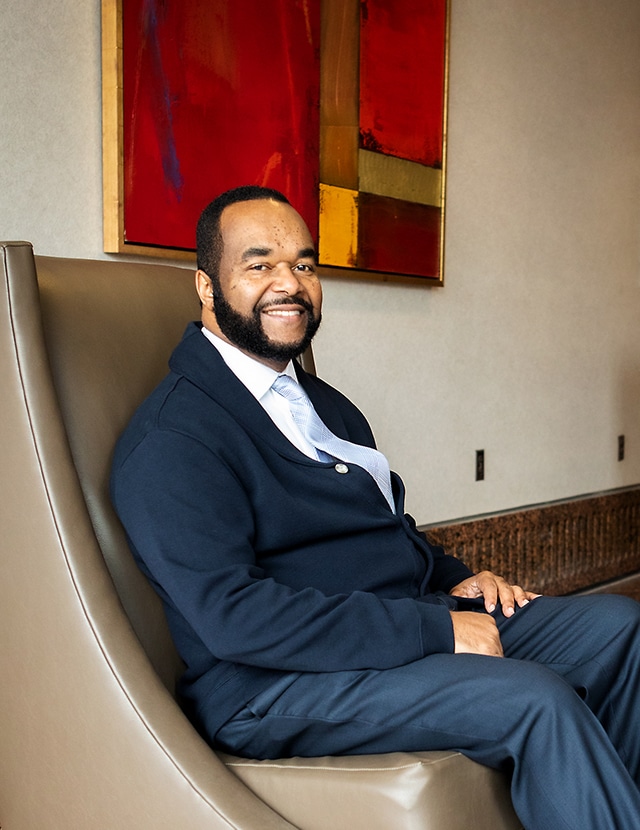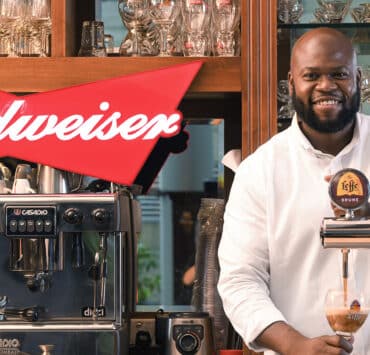|
Getting your Trinity Audio player ready...
|
Carl Q. Carter could tell stories about his time inside one of the big four accounting firms. He could talk about his five years at the US Justice Department. He could share about his experience as the associate general counsel of a Fortune 150 company, relay his accomplishments as a diversity and inclusion champion, or highlight what he’s done as a friend, advocate, and mentor. He could, but he won’t.
Carter is not interested in looking behind him as he steps forward into retirement—he’s more concerned with what lies ahead. “My own long and fulfilling career was possible because people and groups helped me seize the opportunities I found, and now I want to create my own legacy and help enable others in the community,” he says.

You can’t appreciate Carter’s big ambitions without understanding what made him who he is today. He was born and raised in Memphis, Tennessee, where a loving family and supportive community taught him the values of faith, education, friendship, discipline, and hard work. Parents, grandparents, uncles, aunts, cousins, pastors, teachers, and other adults imparted wisdom and encouragement that took him to the top levels of team sports, orchestra, student council, and ROTC.
These relationships and experiences boosted Carter’s confidence, and in 1979, he received one piece of mail that would change his life forever: a letter of acceptance from Morehouse College. Four years at the historically black men’s college where Martin Luther King Jr. studied gave Carter more than a robust academic experience. It also provided brotherhood with like-minded students, support from gifted administrators, and exposure to global leaders.
As a Morehouse Man, Carter stands alongside Spike Lee, Samuel L. Jackson, Raphael Warnock, and countless other civil rights leaders, CEOs, scholars, judges, and athletes. The foundation he established there both anchored and propelled him. “Morehouse charged us to rise to the highest heights but to always remain humble,” he explains. “It taught me to focus not only on my own success but also on my brothers’ success.”
And that’s exactly what Carter has done in the years since. He graduated from the University of Virginia School of Law, clerked with a federal judge, and served in the Attorney General’s Honors Program as a senior trial attorney. Along the way he spent time at Chase Manhattan Bank and Arthur Anderson before joining International Paper in 1993. Over nearly thirty years, Carter held different roles in tax and legal departments culminating with his appointment as associate general counsel in 2009. Through it all, he looked to mentor others and open doors for whoever followed in his footsteps.
“My own long and fulfilling career was possible because people and groups helped me seize the opportunities I found, and now I want to create my own legacy and help enable others in the community.”
Carl Q. Carter
In Carter’s last year at International Paper, his general counsel asked him to create and lead a Signature Pro Bono Initiative to help the organization and its lawyers get involved in the equal justice space in response to the George Floyd murder and other world events. He worked with the National Pro Bono Institute, local firms, and professional legal services groups to create an alliance of providers to assist clients with expungements, driver’s license renewals, restoration of voting rights, and other matters.
Although Carter retired in 2022, he expects to remain busy. In addition to volunteering with the Signature Pro Bono Initiative, he’s creating the Rights Project to take it one step further. With the Rights Project, Carter and his small group of partners will focus on restoring certain rights to individuals whose circumstances and offenses disqualify them from expungement. “We want to work with good people who have been in bad situations and help restore their rights through the Tennessee court system,” Carter explains.
It’s just one of many endeavors Carter is tackling in retirement. He’s also starting the Carter Law Firm and the Carter Foundation. The boutique firm will provide commercial and tax law services and commit 10 to 15 percent of its work to equal justice issues while the foundation will offer scholarships and funding for college and trade schools. The Carter Foundation, which Carter is establishing with his wife, came after he reflected on how others helped him attend Morehouse College and the University of Virginia School of Law.
“It’s important to support education because there are smart and talented young people who might otherwise have to forego or postpone college as costs rise higher and higher.”
Carl Q. Carter
“It’s important to support education because there are smart and talented young people who might otherwise have to forego or postpone college as costs rise higher and higher,” he says. Carter and his wife have placed tremendous emphasis on obtaining an education as one of the key steppingstones in life.
As Carter looks back on his long and successful career, his focus is less about his accomplishments in paper products, commercial law, taxation, and legal compliance and more about how he can use what he’s learned and achieved to help others who can benefit from his life’s work.
The Rights Project, the Carter Law Firm, and the Carter Foundation—these are the pieces to the Carter legacy.
White & Case LLP:
“Carl Carter is smart, collaborative and positive. He quickly recognized the strategic issues facing his client in multijurisdictional trade litigation. I sincerely enjoy working with him.”
–David Bond, Global Trade Practice Head

